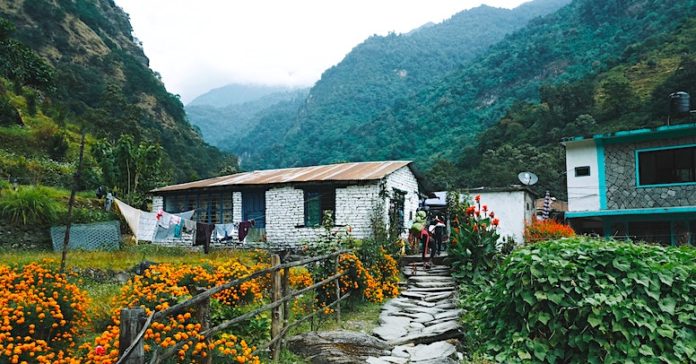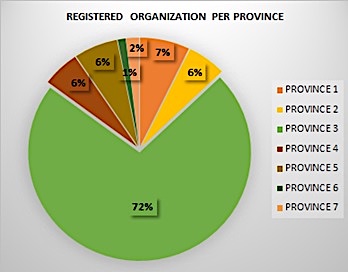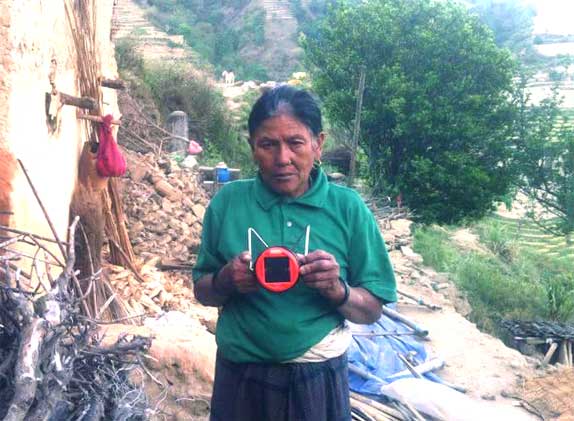
 By Prasiddha Khanal
By Prasiddha Khanal
Entrepreneurship, the word itself has a pleasing, mesmerizing connotation for today’s youths. Probably it’s the single most topic that youths search, study, and explore in detail after they complete their formal education. In other words, at the end of formal educational training, today’s youths are left with two choices: enter the job market or engage in entrepreneurial activity, i.e. start something valuable on their own.
The generation which is guided by the thought of being their own bosses rather than working for others are lured with the prospects of high income, and “easy business ideas” which they can easily find (both online and offline) in today’s vastly interconnected world.
In Nepal, too, the government data shows that registered businesses have grown rapidly in the last few years, which is a clear indication that the entrepreneurial mindset is growing in the country.
Business distribution is highly unequal in Nepal. Investments are being poured into a single province and a select few cities.
While major cities in Nepal are almost urbanized to the level of “saturation”, business competition is very high, and the cost of doing business has skyrocketed. The latest record of the Office of The Company Registrar of Nepal shows that currently there are 2,37,920 registered businesses in Nepal, of which 72 % are in Province No. 3. This clearly shows that business distribution is highly unequal in the country, and investments are being poured into a single province and a select few cities.
This is problematic for two reasons. First, as most of the businesses are based in a few cities, the rest of the country cannot easily get hold of products and services that businesses provide. Second, when all entrepreneurial initiatives, skills, visions, and investments are mainly city-based, it is really difficult to find feasible business ideas and to operate and nourish them.

Against this backdrop, the question is what the government can do to solve such problems and help entrepreneurs and investors to provide new places and opportunities for starting and running a startup or a business.
In this article, I try to analyze and point out some simple as well as a few seemingly complex ideas which will possibly help would-be entrepreneurs to get into a better market. At the same time, the customers will have an easy access to products and services no matter wherever they live in the country, the locals can sell their products to businesses more easily, and local inhabitants, especially unemployed youths, will have employment opportunities in their own communities. Ultimately, this will help reduce the continuous outflux of Nepali youths for foreign employment and provide some relief to Nepal’s remittance-dependent economy.
In a developing country like Nepal, many types of development projects are announced and implemented every year. Currently, construction of roads, hospitals, airports, schools, and even new cites are being carried out in Nepal in order to fulfill the so-called dream of “prosperous Nepal” and to achieve a certain level of development so that the country will “graduate” from the group of least developed countries (LDCs).
However, while going through the development plans and blueprints the government announces every year, we, in many cases, cannot find any plans for the development or construction of other businesses or ventures which could have been implemented side by side along with the ongoing development projects. In that sense, Nepal’s development planning is one-sided and lacks a holistic approach.
It is relevant here to share one of my personal experiences which I got while traveling abroad some time back. The government of that country, I could see, had planned highways so well that the travel was, of course, smooth and fun, but on the way, there were several stops where facilities, such as restaurants, restrooms, vehicle repair shops were available. Everything was so well-planned and well-organized that it looked as if I was in a small city of a developed nation. But no such planning has been done or executed by the government in our country in any of the major highway construction. If the government or the agencies responsible for road planning will plan such facilities on the highways being constructed, it will add many business opportunities and will help maintain the beauty of roads, which, at the moment, are disfigured by unplanned and unmanaged businesses clumsily operating at roadsides.
With proper planning and implementation, numerous business opportunities can be generated in the tourism sector, which can take entrepreneurship and the entrepreneurial spirit genuinely to the local (i.e. micro) level.
In addition, Nepal being a country rich in culture, ecological diversity, and the home to well-known destinations with mesmerizing beauty (such as Mount Everest) has high potential in tourism. So far, the government has failed to promote tourism and valuable Nepali destinations to a wider audience. With proper planning and implementation, numerous business opportunities can be generated in the tourism sector, which can take entrepreneurship and the entrepreneurial spirit genuinely to the local (i.e. micro) level.
With the proper development of tourist destinations, trekking routes, or the landing places for travelers, the government can help countless businesses blossom. While big businesses with a high investment are being badly hit by COVID-19; small, locally operated businesses don’t seem to be much affected, at least in Nepal.
So, learning from situations like this, the government should further enhance and promote local businesses in tourism, and homestays are a good example. With priorities given to small business initiatives, such as homestays in rural tourist destinations, many locals will emerge as entrepreneurs, and by utilizing all the resources available in their own communities. Rather than one big investor operating a large hotel, hundreds of entrepreneurs can emerge with such strategies. By creating massive employment at the local level, initiatives like this one, I believe, have the potential of truly transforming Nepal’s tourism sector.
Another major area that needs to be cultivated with innovation and entrepreneurial thought in Nepal is agriculture.
Another major area that needs to be cultivated with innovation and entrepreneurial thought in Nepal is agriculture. In the last few years, some youths have taken some initiatives and have operated in the agribusiness sector, but still, it’s not on the scale the nation needs. Nepal is a country with thriving possibilities in agribusiness, with the presence of fertile land and enough water for irrigation. If the government came up with relevant schemes to allure youths with visions and determinations in the field of agricultural business, it could certainly transform Nepal’s entire economy. The agricultural sector in Nepal needs innovation and investment, and the government must play the role of an active facilitator.
And, lastly, the government, with prudent policies that favor and uplift SMEs, startups, local businesses, and innovative youths, can shape the future of the nation in a positive way. Sustainable development is possible if resources and income generating activities are linked at the micro-level, and the government should come up with schemes that will entice citizens, especially the youths, to start innovative businesses. Subsidies, tax reforms, promotion of innovative products, training, investment in RD (research and development) are also essential to inspire and attract Nepali youths to engage in local entrepreneurship.
If the government takes serious actions to promote local and community entrepreneurship, this will not only diversify and uplift Nepal’s overall economy, but also provide enormous employment opportunities to Nepal’s jobless youths who have very few options for employment at the moment–apart from lying up in manpower agencies and heading for ill-paid foreign employment in the Gulf countries.
(Prasiddha is pursuing an MBA at Boston International College, Chitwan, Nepal. He is interested in issues of youth and community-led entrepreneurship. He has been part of a youth-led startup in the past.)











Really nice article. COVID-19 has disrupted all big structures, and now it’s time to go small, go local, and encourage small business owners everywhere. Even in countries like China or the USA.